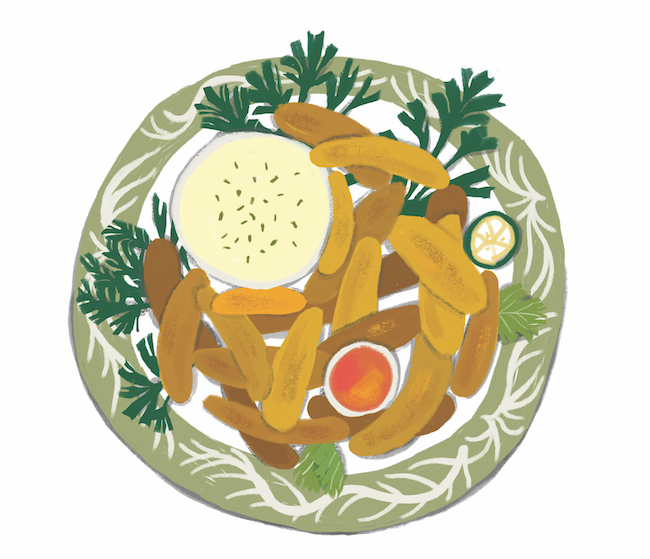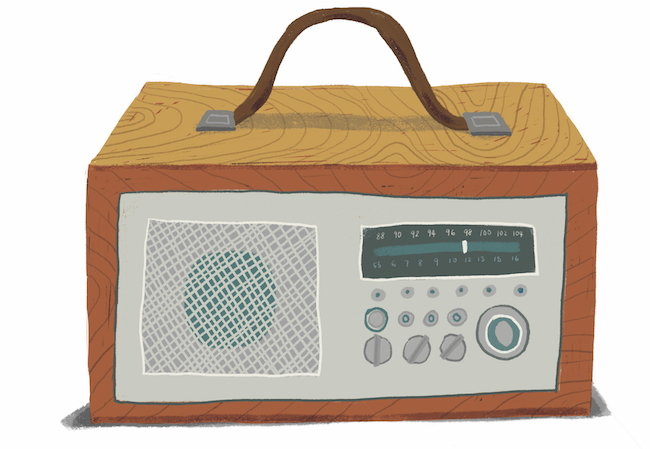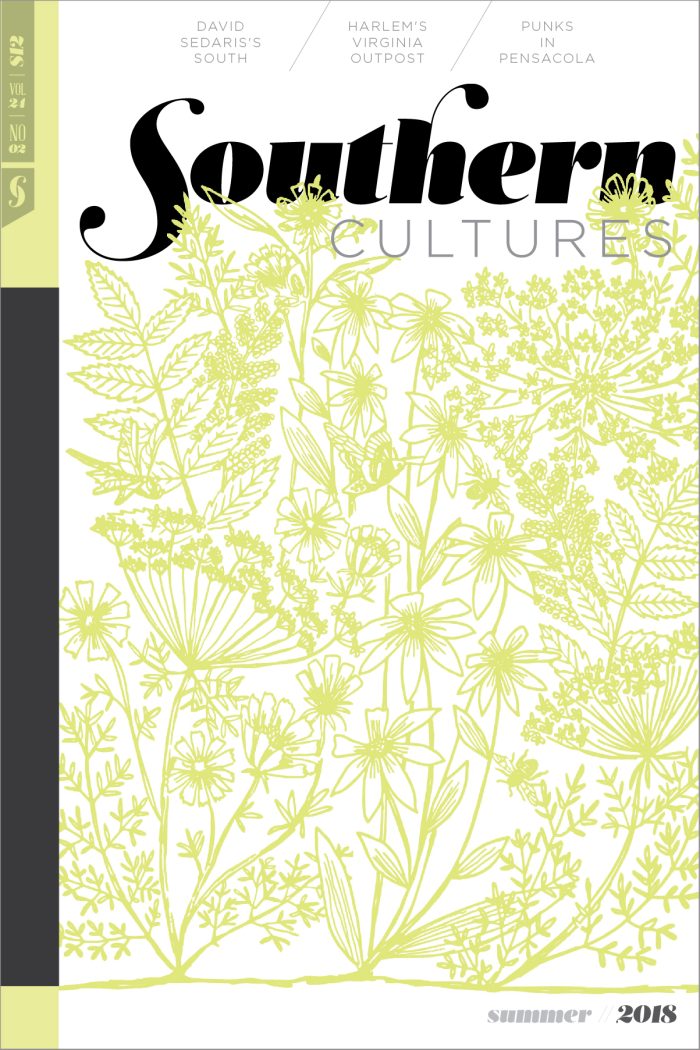This article is excerpted from the Summer 2018 Issue. To read the full essay, visit Project MUSE.
Southern Yankee writers are difficult to identify, for southerners are unlikely to distinguish them from other Yankees, and nobody at all thinks of them as southerners. But an obvious example has been hiding in plain sight for two decades now: David Sedaris. Though he made his career telling stories about his childhood in suburban Raleigh, North Carolina, as the son of an IBM engineer from upstate New York, the phenomenally popular Sedaris is almost never regarded as a southern writer. In Cary (a fast-growing suburb of Raleigh, adjacent to Research Triangle Park), the local joke in those years explained the town’s name as an acronym for “Containment Area for Relocated Yankees.” But the new children of such suburbs were not re-located. They were born in the South or left the North at a young age; they had never formed identities anywhere else. We might call them de-located Yankees, existing in a conflicted, ambiguous cultural space. It is almost unheard of for them to identify as members of a distinct identity group, hyphenated northern-southerners; one might conclude that it is not a distinction that matters. Yet the fact that northern-southernness is not a visible identity makes it interesting. In a country where southerners were (and often still are) marked as Other, where there is no such thing as a journal of Northern Cultures, the experience of southern Yankees does much to destabilize the hegemony of “northern” as uninflected, unremarkable “American.” Unlike children in the North, southern Yankees were forced to ask the questions “What is it to be northern?” and “How do I, as a Yankee, relate to the South?” Unable to fit the cultural expectations of either North or South, Sedaris shows us how fraught both of those categories always were. In Sedaris’s stories of North Carolina we see race, class, and sexuality continually filtered through notions of region.6
Unable to fit the cultural expectations of either North or South, Sedaris shows us how fraught both of those categories always were.
In considering Sedaris’s writings, critics inside and outside the academy have most often debated their status as fiction or non-. This is not surprising, considering that, according to Sedaris himself, the stories are “realish” and “97% true.” Though the journalist Alex Heard has presented convincing evidence that many of Sedaris’s events, characters, and dialogues were invented, other commentators feel that Heard is missing the point; Sedaris’s autobiographical form, they argue, ensures that readers see his writings not as reportage but as self-creation. That said, to understand how Sedaris imagines his relationships to the northern and southern United States, a few biographical facts are necessary. Sedaris was born on December 26, 1956, in Johnson City, New York, near Binghamton, and lived with his family in nearby Endicott, where his father, Lou, born to Greek immigrant parents in Cortland, New York, worked as an engineer for the IBM corporation. In 1965, when David was eight years old, the family (including his Binghamton-born mother, Sharon, older sisters Lisa and Gretchen, and younger sisters Amy and Tiffany) followed Lou’s IBM job to the newly developed suburbs on the north side of Raleigh, where Paul, the youngest Sedaris sibling, was born. The children attended the local Greek Orthodox church and Wake County public schools, with David graduating from Jesse O. Sanderson High School in 1975. David briefly attended Western Carolina University in Cullowhee, North Carolina, but soon transferred to Kent State University in Ohio. After a few unsuccessful semesters, he dropped out in 1977 and hitchhiked around the country. When he returned to North Carolina, he spent several years working odd jobs and creating visual art before moving to Chicago in 1983 at the age of twenty-six. Since then, he has lived entirely outside the South: New York City, Paris, Normandy, London, and rural Suffolk, England, where he still lives. The years 1965–1983, then, stand as a crucial period for Sedaris. In none of his writings does he produce any specific memories of his early childhood in New York State; by the time he left for Chicago in 1983, he was a more or less fully formed adult. Raleigh is most definitely where he grew up, and where his father remains in the family’s home to this day.7

It is notable, then, that he remembers the move south as a traumatic and unwelcome one for his family. In his essay “Giant Dreams, Midget Abilities,” he presents his father’s reaction to IBM’s decree:
Jazz was my father’s only form of rebellion. It was forbidden in his home, and he appreciated it as though it were his own private discovery. As a young man he hid his 78s under the sofa bed and regularly snuck off to New York City, where he’d haunt the clubs and consort with Negroes. It was a good life while it lasted. He was in his early forties when the company transferred our family to North Carolina.
“You expect me to live where?” he’d asked.
The Raleigh winters agreed with him, but he would have gladly traded the temperate climate for a decent radio station.
The ironies here are many. Lou’s fondness for New York’s music and imagined racial relations, and his distaste for what he sees as a racist and benighted South, ignore both the North Carolina origins of many jazz greats (including John Coltrane and Thelonious Monk), and, more to the point, the voluntary support he himself gave to racial segregation by choosing to live in de facto segregated North Raleigh and not to “consort” with the 26.1 percent of Raleigh residents classified as non-white in the 1960 census. At the same time, his identification with New York City belies his decidedly provincial life in Cortland and Binghamton (1960 populations: 19,181 and 75,941, respectively, compared to 93,931 for Raleigh), 200 miles from the metropolis.8

Jazz was my father’s only form of rebellion. As a young man he hid his 78s under the sofa bed and regularly snuck off to New York City, where he’d haunt the clubs.
Looking back on the attitudes he absorbed from his father as a child, Sedaris notes a contradictory message: North Carolina, the only home he could really remember, was culturally inferior to the place his family had left, but the North itself might be a self-serving fantasy. In the adult migrants’ attitudes toward the South (here, in the essay “You Can’t Kill the Rooster”), it is easy to see their anxieties about themselves:
When I was young, my father was transferred and our family moved from western New York State to Raleigh, North Carolina. IBM had relocated a great many northerners, and together we made relentless fun of our new neighbors and their poky, backward way of life. Rumors circulated that the locals ran stills out of their toolsheds and referred to their house cats as “good eatin’.” Our parents discouraged us from using the titles “ma’am” or “sir” when addressing a teacher or shopkeeper. Tobacco was acceptable in the form of a cigarette, but should any of us experiment with plug or snuff, we would automatically be disinherited. Mountain Dew was forbidden, and our speech was monitored for the slightest hint of a Raleigh accent. Use the word y’all, and before you knew it, you’d find yourself in a haystack French kissing an underage goat. Along with grits and hush puppies, the abbreviated form of you all was a dangerous step on an insidious path leading straight to the doors of the Baptist church.
We might not have been the wealthiest people in town, but at least we weren’t one of them.
Sedaris would have us understand that northerners’ stereotypes about North Carolinians proceed from a fear of being seen as “poky, backward” people themselves. For Sedaris’s family, too, class and status are all-pervasive. As we learn in another essay, young Lou Sedaris hid his records under a sofa bed because, growing up in a tiny Cortland apartment with “immigrant parents who considered even pot holders an extravagance,” he never had a bedroom of his own. As Sedaris later said in an interview, he wanted his family to be richer, whiter, and more northern than it actually was: “I always wanted to be one of those super-white families that came over on the Mayflower … I wanted status—parents who showed up in the society pages.” The northerners of “You Can’t Kill the Rooster” reveal a profound discomfort with their own dislocation in the hands of capitalism—in terms the Nashville Agrarians of I’ll Take My Stand would doubtless approve.9
At the same time, the images Sedaris places in the minds of his northern compatriots are derived entirely from the mass media, which in the late 1960s and early 1970s had taken a particular interest in kitschy depictions of rural southern stereotypes (Mountain Dew’s “Willie the Hillbilly” advertisements; The Beverly Hillbillies; The Waltons; much of the career of Burt Reynolds). As Derek Nystrom has shown, this media obsession with working-class rural tropes proceeded largely from middle-class urban concerns: notably, the triumph of globalized capitalism represented by deracinated corporations such as IBM, and of a new professional-managerial class exemplified by Lou Sedaris. Meanwhile, the northerners’ ridicule is haunted by the decline and failure of the northern industrial cities they previously called home. Binghamton, for instance, was, by 2010, down to 47,376 residents, nearly halved from its mid-1950s peak. Visiting his grandparents there as a child, Sedaris finds a shabby, alien place, where his maternal grandmother, emblematic of the age and decrepitude of the region, cannot even remember who he is. In an important sense, Sedaris’s Yankees had been unwillingly “transferred” away from a place that was ceasing to exist. While Sedaris is able to see how little his parents’ concerns had to do with any empirical reality about southerners, he also shows how he is implicated in the northern anxieties of place, status, and identity he mocks.10

Along with grits and hush puppies, the abbreviated form of you all was a dangerous step on an insidious path leading straight to the doors of the Baptist church.
Sedaris also lets us know that, in his childhood, he was aware that many of his neighbors didn’t much like him either. In the 2013 essay “Memory Laps,” he recalls,
I rediscovered swimming. I’ve known how to do it since I was ten and took lessons at the Raleigh Country Club. There was a better place, the Carolina Country Club, but I don’t believe they admitted Yankees. Jews either, if my memory serves me correctly. The only blacks I recall were employees, and they were known to everyone, even children, by their first names. The man behind the bar was Ike. You were eleven-year-old Mr. Sedaris.
The better country club operated on the principle that Raleigh mattered, that its old families were fine ones, and that they needed a place where they could enjoy one another’s company without being pawed at. Had we not found this laughable, our country club might have felt desperate. Instead, its attitude was Look at how much money you saved by not being good enough!
As always, Sedaris’s joke cuts both ways. On the one hand, the “Yankees” claim superiority to the racist local hierarchies; on the other, they can’t escape feeling that the more established club is indeed “better” (if only by being more expensive). To grow up as a Yankee in those circumstances was to know that, in the eyes of your neighbors, you just weren’t good enough. Sedaris skirts the edge of offensive hyperbole by placing his family in the same category as African Americans and Jews, but the comparison identifies an important ambivalence. He could accuse the Raleigh country-club set of intolerance, but that accusation reinforces the idea that established southerners could still control the terms of cultural hierarchy for others. Eleven-year-old Mr. Sedaris was growing up in Raleigh, but he could never call it his.11
If Sedaris and his imagined community felt excluded from established white southern culture, it is important to define in what culture that southern identity might have consisted. It is also worth defining what “Yankee” might have meant for both newer and older populations in the South. While neither term has ever been clear or distinct, in the years of Sedaris’s youth their ambiguity took on a particular emotional intensity. It is clear that the term “Yankee” and its associated ideas existed only in the minds of people who thought of themselves as southerners; aside from the baseball team and the (by Sedaris’s time, somewhat outdated) usage to denote rural New Englanders, northerners in the twentieth century seldom used the term at all. Speaking (and thinking) of himself as a Yankee, Sedaris is very much part of a southern cultural community.12

For southerners, as historian James C. Cobb has observed, the North was often defined simply as everything the South was not. But what, then, were southerners? As has been widely noted, during Sedaris’s formative years many in the South experienced a crisis of identity. Faced with both the abolition of statutory white supremacy and a major economic transformation, many white southerners entered a period of intense existential debate, characterized in books such as John Egerton’s The Americanization of Dixie: the Southernization of America (1974), Marshall Frady’s Southerners (1980), and sociologist John Shelton Reed’s The Enduring South (1972). Reed’s Southerners: The Social Psychology of Sectionalism (1983), based on survey data collected in North Carolina in 1971 (just as Sedaris was entering high school in Raleigh), approached the question with chapters entitled “Who Am I?,” “What is a Southerner?,” and “My Kind of People,” finding that while personal prejudice against individual northerners was uncommon, expressions of grievance or disapproval against “the North” as an abstract concept remained quite alive. While the Reconstruction-era Yankee stereotype of W. J. Cash’s “Old South Myth”—”cowardly, avaricious, boorish, half Pantaloon and half Shylock”—was in decline, elements remained. As late as 2002, Reed felt the need to distinguish between the Yankee as object of southern distrust and “Our Kind of Yankee.” While he is not threatened by working-class northerners (whose late-twentieth-century economic prospects, coincidentally, had declined as southerners’ had risen), the northern professional-managerial class is still a problem. Though by the end of the 1970s the South’s economy had equaled or exceeded that of the rest of the country, for at least some people the feeling of Yankee exploitation endured.13
At the same time, Yankees remained a symbolic target of resistance to racial change. As Cobb puts it, for mid-twentieth-century southerners such as Cash, it was “impossible . . . to separate southern whites’ hostility to black progress from their feelings of anger and resentment toward the North”—though the concurrent experience of school desegregation made it clear that many northern whites shared that hostility. Altogether, as Jon Smith points out, much southern writing of the mid-to-late twentieth century exhibited symptoms of narcissistic panic, “what [Robert D.] Stolorow calls ‘regressive attempts at identity maintenance through mirroring in the object’”; those attempts, Smith further argues, are always more invested in the pleasure of the crisis than in actually securing that identity. That is: if white southern writers exhibited undue pique toward the northerners in their midst, the causes might be traced both to rapid economic changes and to their own loss of status in the wake of the Civil Rights Movement.14
Growing up as a northerner among southerners, Sedaris was well positioned to experience this anxiety of southern identity from both the outside and inside. With a characteristic mixture of malice and sympathy, Sedaris recalls just such an experience in the story “I Like Guys.” To understand its regional implications, it is important to consider one of the most distinctive features of Sedaris’s career: his unprecedented success in radio, audiobooks, and live performance. By his own account, his popularity is entirely due to National Public Radio’s Ira Glass, who discovered him at an amateur reading in New York and engaged him for This American Life: “I owe everything to Ira … My life just changed completely, like someone waved a magic wand.” As a live performer of his own works, Sedaris has been selling out 2,000 to 3,000 seat theaters for nearly two decades; his audio-book recordings routinely top bestseller lists and have been nominated for three Grammy awards. That performing voice, it should be said, is definitely not what most people would call southern. The accent of his usual delivery might be described as U.S. public radio standard, with a slight but perceptible touch of New York. But when he reads stories of his Raleigh childhood, he unfailingly chooses to read the North Carolinian characters in a comically exaggerated country accent.15

I owe everything to Ira . . . My life just changed completely, like someone waved a magic wand.
For the audiobook of “You Can’t Kill the Rooster,” his sister Amy (a successful comic actor in her own right) reads the part of their brother Paul—whose highly self-conscious and performative embrace of “southern” speech Sedaris describes as a “complex hybrid, informed by his professional relationships with marble-mouthed, deep-country work crews and his abiding love of hard-core rap music”—with banjo music as accompaniment. This is how many, if not most of his readers have experienced his work. With that in mind, consider this passage:
Shortly before I graduated from eighth grade, it was announced that, come fall, our county school system would adopt a policy of racial integration by way of forced busing. My Spanish teacher broke the news in a way she hoped might lead us to a greater understanding of her beauty and generosity.
“I remember the time I was at the state fair, standing in line for a Sno-Kone,” she said, fingering the kiss curls that framed her squat, compact face. “And a little colored girl ran up and tugged at my skirt, asking if she could touch my hair. ‘Just once,’ she said. ‘Just one time for good luck.’
“Now, I don’t know about the rest of you, but my hair means a lot to me.”
The members of my class nodded to signify that their hair meant a lot to them as well. They inched forward in their seats, eager to know where this story might be going. Perhaps the little Negro girl was holding a concealed razor blade. Maybe she was one of the troublemakers out for a fresh white scalp.
I sat marveling at their naïveté. Like all her previous anecdotes, this woman’s story was headed straight up her ass.
“I checked to make sure she didn’t have any candy on her hands, and then I bent down and let this little colored girl touch my hair.” The teacher’s eyes assumed the dewy, faraway look she reserved for such Hallmark moments. “Then this little fudge-colored girl put her hand on my cheek and said, ‘Oh,’ she said, ‘I wish I could be white and pretty like you.’” She paused, positioning herself on the edge of the desk as though she were posing for a portrait the federal government might use on a stamp commemorating gallantry. “The thing to remember,” she said, “is that more than anything in this world, those colored people wish they were white.”
While Sedaris’s disdain is clear enough in the printed text, by pointedly caricaturing her pronunciation in his recorded readings he further performs her southernness as stereotype, alien to his northern-voiced self. On first listen, this scene appears to be simple mockery not just of the teacher’s delusional ideas but of who she is.16
Yet this happens in a story that is explicitly about the injustice of mocking other people for who they are and how they talk. In the ensuing paragraphs, Sedaris details his own fear and shame as both teachers and students openly deride stereotypically gay male ways of talking and acting. Newly desegregated, the school replaces overt racism with homophobia: “Black and white, the teachers offered their ridicule as though it were an olive branch. ‘Here,’ they said, ‘this is something we each have in common, proof that we’re all brothers under the skin.’” Hostility to the Other is wrong, yet inescapable.

In the same story, Sedaris and his sister Lisa are sent to a summer camp in Greece with other Greek American children, many of whom are from New York. In an attempt to fit in with the popular girls, Lisa spends the whole summer affecting a “very bad Queens accent” (which Sedaris performs for laughs) and disavowing any connection to her brother:
She cursed and spat, scowling out the window of the chartered bus as if she’d come to Greece with the sole intention of kicking its dusty ass. “What a shit-hole,” she yelled. “Jeez, if I’d knowed it was gonna be dis hot, I woulda stayed home wit my headdin da oven, right, girls!” It shamed me to hear my sister struggle so hard with an accent that did nothing but demean her, yet I silently congratulated her on the attempt. I approached her once we reached the camp, a cluster of whitewashed buildings hugging the desolate coast, far from any neighboring village.
“Listen, asshole,” she said, “as far as this place is concerned, I don’t know you and you sure as shit don’t know me, you got that?” She spoke as if she were auditioning for a touring company of West Side Story, one hand on her hip and the other fingering her pocket comb as if it were a switchblade.
“Hey, Carolina!” one of her new friends called.
“A righta ready,” she brayed. “I’m comin’, I’m comin’.”
The joke here, of course, is that Lisa’s put-on accent and stereotypically “Yankee” behavior aren’t fooling the “real” New Yorkers; in their eyes she’s exactly what both she and her brother would least like to be: a southerner. The harder she tries not to be one, the more ridiculous she sounds—but David recognizes the attempt to fit any role as impossible, if laudable. Sedaris and his siblings are clearly not “one of them,” but on the other hand they’re not not one of them, either. With that in mind, we can return to the Spanish teacher’s racial self-delusion. As with all categories of identity, southernness must be performed, and that performance can never be entirely “successful.” What joins Lisa to the Spanish teacher (especially in Sedaris’s audio recording) is the obviousness of their performances, the one “as though she were posing for a portrait the federal government might use on a stamp” and the other “as if she were auditioning for a touring company of West Side Story.” In a word, from a southern Yankee point of view, both North and South are camp, and camp (in two senses, here) is inescapable. The narcissistic mirroring is palpable, and in both cases arises from circumstances of acute change: for the teacher, desegregation and loss of identity, and for Lisa, adolescence and formation of it. Under the ridicule, then, we can detect a bit of sympathy for the teacher desperately trying to perform her white southernness; we can also recognize Sedaris himself among his eighth-grade classmates, inching forward in their seats, desperate to learn who they are.17
On the one hand, Sedaris’s experience as a southern Yankee leaves him with a grievance against an alienated childhood that gave him no sense of community aside from his own family. On the other, it allows him to see and sympathize with the anxieties of both regions, standing, as it were, both inside and outside the tree house in Watson’s story. If we can imagine Yankees as southerners too—if Sedaris can show us a person formed by that opposition but subverting it—then perhaps, as Romine has argued, we have moved into an era in which “the voluntary muscles of the late South make culture less a matter of accepting an existing account of how I fit than of improvising an account of how I stick (myself).” In a South like that, even David Sedaris might find a place.18
To read the full article, visit Project Muse. This essay first appeared in vol. 24, no. 2 (Summer 2018).
Brian Glover is Assistant Professor of English at East Carolina University. He specializes in the history of the novel, with attention to eighteenth-century Britain and media theory. He is also interested in ecocriticism, memoir, and literature of the U.S. South.NOTES
6. As of 2015, more than ten million copies of Sedaris’s books were in print, in twenty-five languages. “David Sedaris,” Barclay Agency, accessed October 9, 2015, http://barclayagency.com//site/speaker/david-sedaris. After a dedicated search, I have uncovered only one public use of the adjective “southern” to describe him: Ryan Richie, who in a Rolling Stone piece referred to him as “America’s favorite Southern ex-Santa.” Sedaris may well be southern, but at Macy’s Santaland he played the role of elf. See “Q&A: David Sedaris on Profanity, Book Tours and the YMCA,” Rolling Stone, May 10, 2013, http://www.rollingstone.com/culture/news/q-a-david-sedaris-on-profanity-book-tours-and-the-ymca-20130510.
7. David Sedaris, When You are Engulfed in Flames (Boston: Little, Brown, 2008), copyright page; Gilbert Cruz, “10 Questions for David Sedaris,” Time, July 5, 2008, http://content.time.com/time/magazine/article/0,9171,1812072,00.html; Alex Heard, “This American Lie,” New Republic, March 19, 2007, http://www.newrepublic.com/article/american-lie-midget-guitar-teacher-macys-elf-and-thetruth-about-david-sedaris; Kylie Cardell and Victoria Kuttainen, “The Ethics of Laughter: David Sedaris and Humour Memoir,” Mosaic: a Journal for the Interdisciplinary Study of Literature 45, no. 3 (September 2012): 99–114; Kevin Kopelson, Sedaris (Minneapolis: University of Minnesota Press, 2007), 3, 11–15; Finding Your Roots, season 2, episode 9, “Ancient Roots,” directed by Muriel Soenes, Josh Gleason, Phil Bertelsen, Jesse Sweet, Sabin Streeter, written by Henry Louis Gates Jr., featuring Tina Fey, David Sedaris, and George Stephanopoulos, aired November 18, 2014, on PBS; Heard, “This American Lie.”
8. David Sedaris, Me Talk Pretty One Day (Boston: Little, Brown, 2000), 18.
9. United States Bureau of the Census. Census of Population: 1960. Volume I, Part 34: New York. (Washington: U.S. Government Printing Office, 1963), 14–15; Volume I, part 35: North Carolina, 31; Sedaris, “You Can’t Kill the Rooster,” Me Talk Pretty One Day, 60–61; Sedaris, “Get Your Ya-Yas Out!,” Naked (Boston: Little, Brown, 1997), 23–24; Sedaris, “Giant Dreams, Midget Abilities,” Me Talk Pretty One Day, 18; Warren St. John, “Turning Sour Grapes Into A Silk Purse,” New York Times, June 6, 2004, http://www.nytimes.com/2004/06/06/style/turning-sour-grapes-into-a-silk-purse.html.
10. Jack Temple Kirby, Media-Made Dixie: the South in the American Imagination (Baton Rouge: Louisiana State University Press, 1978); Derek Nystrom, Hard Hats, Rednecks, and Macho Men: Class in 1970s American Cinema (New York: Oxford University Press, 2009), 5; “Binghamton, New York—A Brief History,” City of Binghamton, New York, accessed October 9, 2015, http://www.binghamton-ny.gov/history; Sedaris, “Get Your Ya-Yas Out!” and “Remembering My Childhood On The Continent of Africa,” in Me Talk Pretty One Day, 197.
11. Sedaris, “Memory Laps,” in Let’s Explore Diabetes With Owls (Boston: Little, Brown, 2013), 27–28. The Carolina Country Club admitted its first African American members in 2013. “Carolina Country Club Admits Its First African-American Couple,” News & Observer, July 8, 2013, http://www.newsobserver.com/news/local/community/midtown-raleigh-news/article10275806.html.
12. See, for instance, The New Dictionary of Cultural Literacy, eds. E. D. Hirsch Jr., Joseph F. Kett, and James Trefil (New York: Houghton Mifflin, 2002), 355.
13. Cobb, Away Down South, 215; John Shelton Reed, Southerners: The Social Psychology of Sectionalism (Chapel Hill: University of North Carolina Press, 1983), 96–99, 72–77; W. J. Cash, The Mind of the South (New York: Alfred A. Knopf, 1941), 67; Reed, “Our Kind of Yankee,” Southern Cultures 9, no. 1 (Spring 2003): 15; Cobb, Industrialization and Southern Society, 1877–1984 (Lexington: University Press of Kentucky, 1984), 67.
14. Cobb, Away Down South, 214; Jon Smith, “Southern Culture on the Skids: Punk, Retro, Narcissism, and the Burden of Southern History,” in Suzanne W. Jones and Sharon Monteith, eds., South to a New Place: Region, Literature, Culture (Baton Rouge: Louisiana University Press, 2002), 79; Finding Purple America: The South and the Future of American Cultural Studies (Athens: University of Georgia Press, 2013), 3–4.
15. St. John, “Turning Sour Grapes Into A Silk Purse”; St. John, “Turning Sour Grapes Into A Silk Purse”; “My Grammys: Weird Al, David Sedaris and More Remember the Big Night,” Rolling Stone, February 3, 2015, http://www.rollingstone.com/music/lists/my-grammys-weird-al-david-sedaris-and-more-remember-the-big-night-20150203.
16. David Sedaris, “You Can’t Kill the Rooster,” The David Sedaris Box Set [Audio CD] (New York: Grand Central Publishing, 2002); Sedaris, Naked, 81–82. For a recording of Sedaris reading this story, see “I Like Guys,” from “The Cruelty of Children,” This American Life, National Public Radio, June 21, 1996, accessed October 9, 2015, http://www.thisamericanlife.org/radio-archives/episode/27/the-cruelty-of-children.
17. Sedaris, Naked, 87–88, 94.
18. Romine, The Real South, 11.


